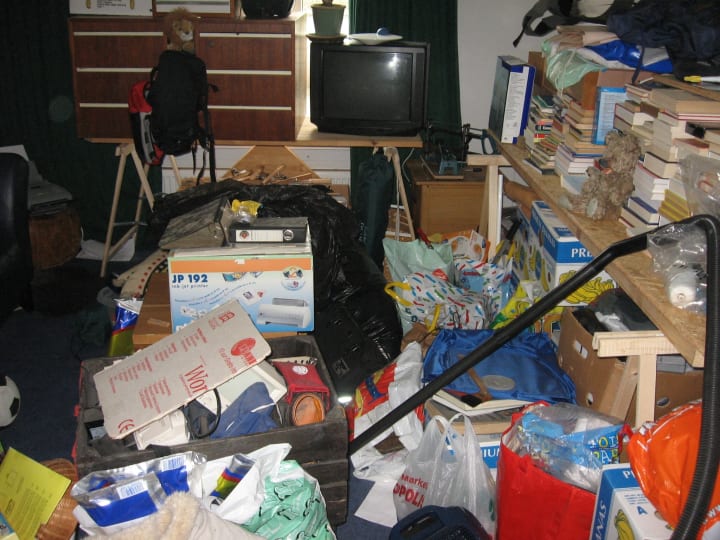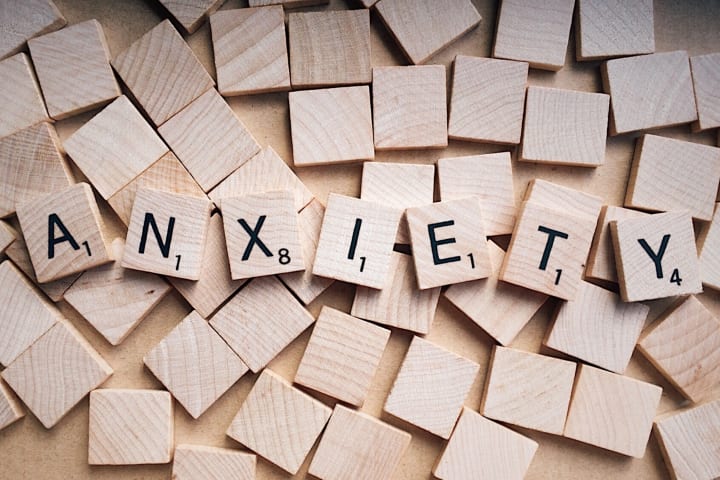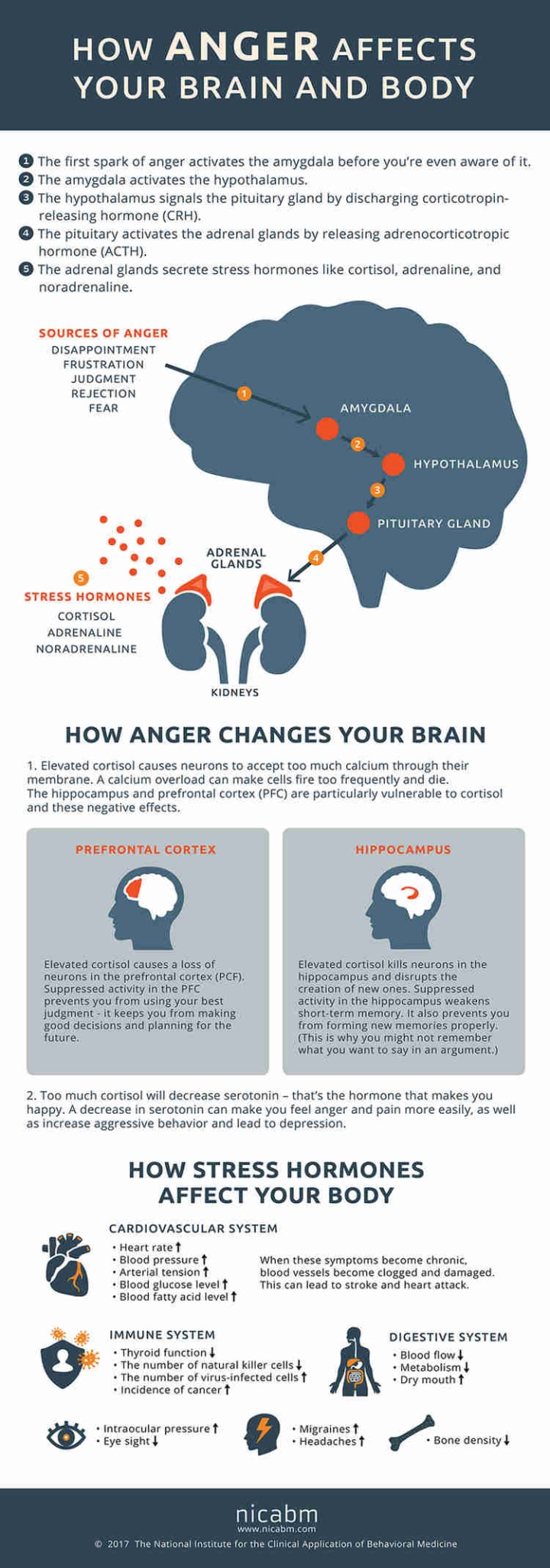Contentment and health
Can clutter really make you unhealthy

Health and contentment
What are the health risks associated with clutter?
“It is health that is real wealth, not pieces of gold and silver.” ~ Gandhi
Health is usually associated with viruses, bacteria, or diseases, but health encompasses much more than these things. Our brain is a powerful tool, which can lead to disease when wired negatively. It is interesting to consider how depression and stress can lead to severe body pains and headaches. What about contentment? How does it relate to health?
“The day she let go of the things that were weighing her down, was the day she began to shine the brightest.” ~ Katrina Mayer
To understand the connection between contentment and health, we must understand how our brain reacts to clutter. Four key elements, surprisingly essential to our health, will be discussed below.
A stimulus
To understand how stimulation works, we will examine its effect on the nervous system. The senses constantly send signals to the nervous system, which creates a response called reactions. For example, imagine you are sitting outside and enjoying the sun. The smell of a skunk (stimulus) catches your attention while sunbathing. Your heart starts pumping (reaction), and you try to locate the skunk visually. Seeing the skunk barely three feet away from you (another stimulus), you run for safety back into your house (reaction).
We get stimulated every hour of our lives, whether through smell, sight, touch, hearing, or taste. Some stimuli are enjoyable, for example, when we climb a mountain and see the view. Others are harmful, especially when they remain for more extended periods. Some are there to protect us, for example, feeling the heat of a fire when too close. We can also become overstimulated, which causes significant stress to our bodies.
Consider the following scenario. You cannot remember where you left your keys; by now, you know you'll be late for work. A lot of stimuli and reactions will overlap each other. You may open all the drawers, and the closets, flip the sofa cushions, even your bed, and look through all the pockets, purses, the car, and under the furniture. The more you search, the more anxious you become until you finally find them and can leave.
Being late can negatively affect the rest of your day. You will likely experience various emotions (nervousness, anger, disappointment, annoyance, etc.). The ability to be patient with others will probably be limited, and tactfulness may be lacking. A sudden outburst may occur towards everyone and everything. It can be anything from road rage to your children, spouse, coworkers, the cashier talking too much or not being fast enough, to burning your diner. Perhaps you experienced something similar. Even the question of what was wrong might have been irritating. While we react differently, it is normal to feel those things because we all have bad days.
Why does clutter have a connection to this?
First of all, a decluttered house makes it easier to find your keys!
Joke aside, the point here is that a cluttered house overstimulates you daily. You see clutter whenever you open a closet or walk around the house. You know it's there even when you can't see it. There is a smell to it as well. You might imagine the scent of an old book or a thrift store. Although you may not realize it, your nose smells everything, including the clutter in your house. Others may have commented on how much stuff you have, or you may have argued with your spouse or family over it. Just navigating around all of this puts your body under constant stress. There is no denying that this stimulation affects your health, whether you like it or not.
Take a moment to consider how the pictures makes you feel.
What is the first thing that comes to mind?
If that were your living room, how would you feel?


Experiencing stress
The previous section briefly touched on stress, but it goes beyond physical stress. According to many studies, people who live in clutter have higher cortisol levels, the stress hormone, in their bodies. Several problems result from this, including headaches, pressure migraines, anxiety, depression, digestion problems (bloating, cramps, loss of appetite), a lack of concentration, memory loss, brain fog, heart disease, weight gain or difficulty losing weight, even with strict diets, and so on. Clutter affects not only the person who is cluttering but their entire family.
Is your house always messy, no matter what you do?
Do you feel like you have to clean constantly?
Are you sometimes unable to remember where an item went when your house is clean?
Are you afraid of losing material things, or is it challenging to give them away?
The stress of dealing with these factors can negatively impact your health.
A lack of judgment
There is a high likelihood that your clutter will impair your judgment. A cluttered environment can lead to terrible decisions. In addition, you will feel more confident in your choices, even when they aren't good ones. It is important to remember that your body is constantly overstimulated. You might not realize it, but your environment creates some uncertainty, which leaves you in a confused state of mind. It doesn't matter if you are making an important decision; if your surroundings are messy, you cannot think clearly. There is a consensus among psychologists that life decisions should take place in a clean, happy place.
How does this point affect your health?
Decisions made too quickly can lead to stress. It is possible to regret a decision later on, which can cause anxiety. Making the wrong decision may lead to breaking friendships, hurting loved ones, and isolating yourself. Consequently, mental illnesses such as depression can develop

Impulsiveness
The discussion here is not about compulsive buying disorder but the lack of judgment in making decisions. When you don't think about things, you may misinterpret them. Impulsive people make decisions without thinking about the consequences, and it is common for them to jump to conclusions and judge people too quickly, even close friends. Your life will become filled with quarrels on a wide range of subjects. Your ability to handle bad days will become more limited, and you will feel overwhelmed daily. Clutter, while not the only factor, significantly contributes to the situation.

Putting the pieces together
To better understand how clutter affects our health, we found this great explanation from NICABM. The following summarizes clutter's damaging effects when anger invades the mind in an easy-to-understand way.
The good news is there is always time to change if this describes you.
You can take the course Taking a minimalistic approach; my way to help you transition, regardless of where you are in your journey offered by Ozeya Life, it's a lifestyle. Need more specific coaching or have specific questions? You can book a coaching session O-Reactivar if you want some help.
www.ozeyalife.com
Follow them on Instagram @ozeyalife.

About the Creator
Hippy vagabond
We are the dynamic duo of imagination and wellness, your go-to source for captivating fiction stories and soul-stirring poetry. We transport you to worlds where dreams come alive. Join us on a beautiful journey of wonders and well-being.






Comments
There are no comments for this story
Be the first to respond and start the conversation.